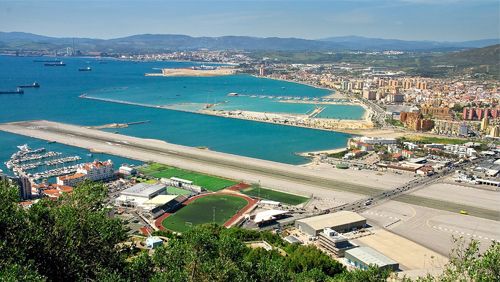
Gibraltar has always been somewhat of the red-headed stepchild for the U.K. Located at the southern end of Spain, the U.K. claims ownership of the territory, but doesn’t want to spend a lot of resources to maintain it. It’s because of this that Gibraltar acts almost completely as an autonomous territory, which has led the way for it to become a favorite among gambling operators. With Brexit approaching last year, the fate of Gibraltar was unknown, but it now looks like the separation of the U.K. from the European Union (EU) may have been one of the best things ever for The Rock. Not only is Gibraltar’s gambling industry expected to grow, but the territory might also be considered a Schengen Area.
As the U.K. and the EU were finalizing their divorce last month, the subject of what would happen to Gibraltar came up. At the last minute, British and Spanish authorities threw together a “political framework” that became the foundation of a Gibraltar-specific treaty between the territory and the EU. That, as things are progressing right now, would establish The Rock as a Schengen Area, adding it to a list of 26 EU countries that allow unfettered movement, tourism and employment.
That’s pretty big news for a pretty small island and would give Gibraltar a lot of independence. This, according to Andrew Lyman, would be a catalyst for gambling expansion in Gibraltar and would lead to major growth of The Rock’s economy. Lyman is the executive director of the Government of Gibraltar’s Gambling Division and recently shared his predictions with CasinoBeats.
Lyman fully expects Gibraltar’s gaming industry to “grow and thrive” once all the dust settles from Brexit, driven by the acceptance of the territory in the Schengen Area. He explained to CasinoBeats that the inclusion will benefit both Gibraltar and Spain since it would guarantee the “continued shared prosperity between Gibraltar and the ‘campo’ in which some 15,000 workers live in Spain, but work in Gibraltar.”
Because Gibraltar has learned to be autonomous and self-reliant, it knows how to adapt to meet changing environments. This, asserted Lyman, makes the territory extremely flexible and he emphasized that Gibraltar “has been changing and evolving since 2014 and has sustained despite legal changes in the U.K. and elsewhere well before the 2016 Brexit vote.” He added, “Gibraltar is not going to reduce its attractiveness to business whilst at the same time remaining a jurisdiction which commands international respect and full U.K. support. It also wants to continue to build a close relationship with the EU. I am very optimistic for the future.”